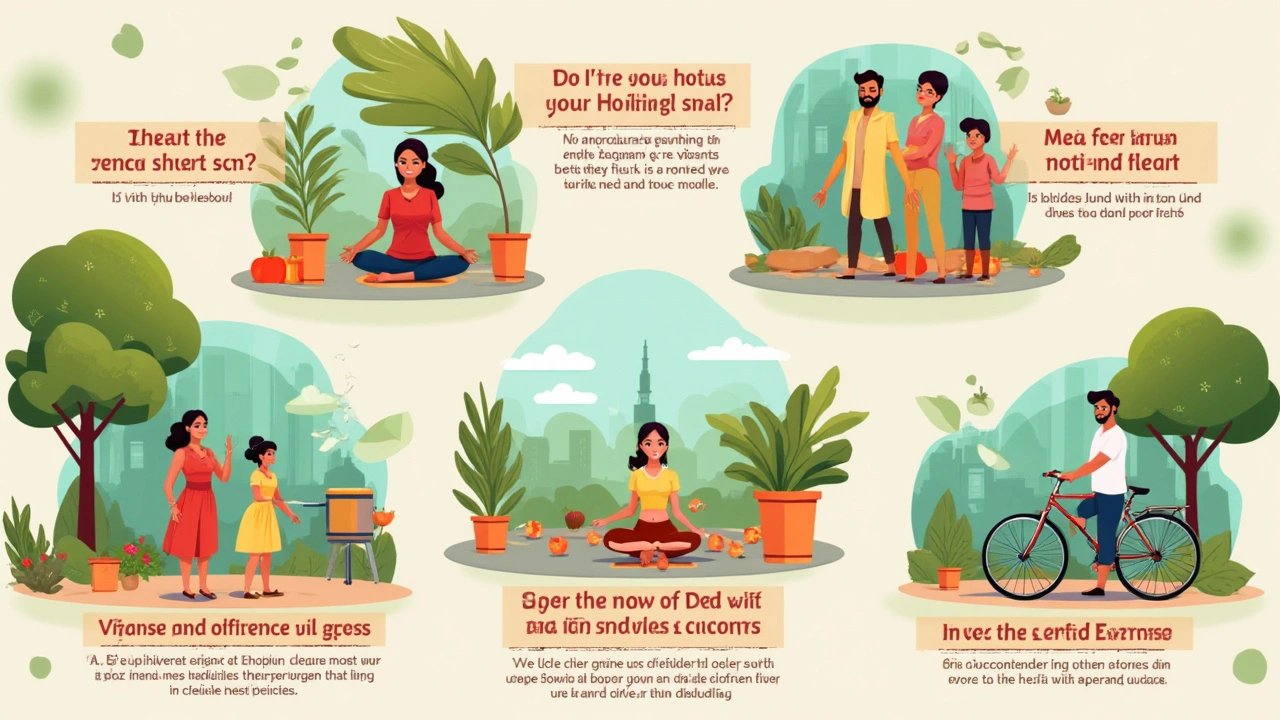
When you think of world's most prevalent sickness, heart disease probably tops the list. It's a major concern and affects millions. While many blame genetics, lifestyle choices play an equally important role. So where does medical tourism come into play? People are traveling across borders to get affordable, advanced heart treatments.
Medical tourism might sound fancy, but for many, it's a practical solution to receive top-notch cardiac care without breaking the bank. Countries like India, Thailand, and Costa Rica are emerging as hotspots for heart-related surgeries. Why? These places offer cutting-edge treatments, often paired with exotic locations to recover.
- The Prevalence of Heart Disease
- Medical Tourism for Cardiac Care
- Top Destinations for Medical Tourism
- Preventive Measures and Lifestyle Tips
The Prevalence of Heart Disease
Heart disease isn't just a health issue; it's the leading cause of death worldwide. According to the World Health Organization, heart disease claims about 17.9 million lives each year. That’s a staggering number!
One reason for its prevalence is lifestyle. From poor diets to sedentary habits, our daily choices often increase the heart disease risk. Processed foods, high in sugars and unhealthy fats, contribute significantly. Pair that with lack of physical activity, and you’ve got a recipe for disaster.
Genetics can also play a role, but unlike genes, lifestyle factors are within our control. Small changes like walking more, eating whole foods, and reducing stress can greatly lower one's risk.
Why It’s Global
Heart disease affects all corners of the globe, but why? Urbanization and the fast-paced lifestyle it brings might be culprits. As societies modernize, convenience often replaces health-focused traditions. This shift can visibly impact heart health.
| Region | Incidence (%) |
|---|---|
| North America | 11.5 |
| Europe | 10.8 |
| Asia | 9.2 |
These numbers highlight the need for global awareness and action. The bright side? Recognizing the problem is the first step toward finding a solution.
Tackling the Issue
Governments and organizations are working hard to spread awareness and improve access to healthcare. They're promoting healthier diets, encouraging physical activity, and facilitating regular health check-ups. For many, finding quality care can lead to seeking options through medical tourism, where advanced treatments might be financially accessible.
Medical Tourism for Cardiac Care
So, why are people hopping on planes to fix their hearts? It's pretty simple: cost. Heart treatments can be insanely expensive in some countries, but places like India, Thailand, and Costa Rica offer the same—or even better—care for a fraction of the price. This isn't just about getting a bargain, though; it's about accessing top-tier medical expertise and technology.
Thousands of patients every year choose to travel for procedures like bypass surgery, angioplasty, or valve replacements. Imagine combining a vacation with life-saving medical care—it's a reality for many. Not only does this allow individuals to cut down on costs significantly, but these countries also boast some of the most skilled doctors, many trained in Western nations.
Popular Treatment Destinations
India has made a splash as a leader in medical tourism, with cities like Chennai and Mumbai having world-renowned hospitals that specialize in heart surgeries. Thailand isn't far behind, offering packages that cover surgery, accommodation, and often some sightseeing.
Costa Rica has become a go-to for North Americans, not just due to its proximity but because it offers high-quality care without the steep price tags. And with some of these hospitals having accreditation from international bodies, you know you're in safe hands.
What to Consider Before You Go
- Research the Facilities: Ensure that the hospitals have international accreditations.
- Check the Doctor's Credentials: Look at their experience and where they were trained.
- Understand Costs: Get clarity on what the package includes—always read the fine print.
- Plan for Recovery: Consider how long you'll stay for post-surgery care.
In a nutshell, medical tourism for heart treatments allows access to affordable care without compromising quality. But like any major decision, it demands thorough research and careful planning.

Top Destinations for Medical Tourism
If you think about traveling for healthcare, a few places might spring to mind.
Preventive Measures and Lifestyle Tips
Preventing heart disease isn't rocket science, but it takes some commitment. The first step is knowing where you stand. Check up on those cholesterol levels and blood pressure readings regularly. Got a family history of heart issues? Make sure you're keeping extra tabs on your health.
Eat Your Way to a Healthy Heart
You might have heard it before, but eating healthy really matters. Think lots of fruits, veggies, whole grains, and lean proteins. Saturated fats and processed foods? Not your friends. Consider going Mediterranean—it's a diet known for supporting heart health with olive oil, nuts, and fish.
Get Moving, Stay Active
Hear "exercise" and roll your eyes? If yes, time to redefine your relationship with physical activity. Even a daily 30-minute walk can make a difference. The goal is to get moving in ways you enjoy, whether it's dancing, biking, or even gardening.
Kick Smoking to the Curb
If you're a smoker, quitting is one of the best things you can do. Smoking damages your blood vessels and raises the risk of heart disease. Need help quitting? Talk to a healthcare provider about strategies that work.
Table: Benefits of Lifestyle Changes
| Change | Impact on Heart Health |
|---|---|
| Eating Healthy | Lowers cholesterol and blood pressure |
| Regular Exercise | Improves heart function and mood |
| Quitting Smoking | Reduces risk of heart attack |
Manage Stress
Last but not least, stress isn't just a mental thing—it affects your body too. Find what relaxes you and make it a habit. Whether it's yoga, meditation, or simply winding down with a good book, it's essential.
So, don't wait for a wake-up call. Make these part of your routine. Your heart will thank you!





Rohan Talvani
I am a manufacturing expert with over 15 years of experience in streamlining production processes and enhancing operational efficiency. My work often takes me into the technical nitty-gritty of production, but I have a keen interest in writing about medicine in India—an intersection of tradition and modern practices that captivates me. I strive to incorporate innovative approaches in everything I do, whether in my professional role or as an author. My passion for writing about health topics stems from a strong belief in knowledge sharing and its potential to bring about positive changes.
view all postsWrite a comment